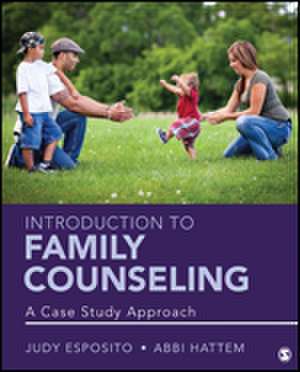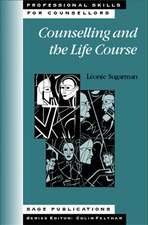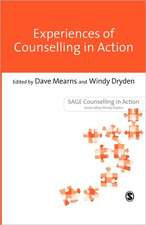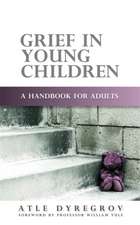Introduction to Family Counseling: A Case Study Approach
Autor Judy F. Esposito, Abbi K. Hattemen Limba Engleză Paperback – 9 feb 2016
Preț: 814.94 lei
Preț vechi: 1101.27 lei
-26% Nou
Puncte Express: 1222
Preț estimativ în valută:
155.98€ • 162.23$ • 130.71£
155.98€ • 162.23$ • 130.71£
Carte disponibilă
Livrare economică 21 februarie-07 martie
Livrare express 06-12 februarie pentru 33.77 lei
Preluare comenzi: 021 569.72.76
Specificații
ISBN-13: 9781483351766
ISBN-10: 1483351769
Pagini: 368
Dimensiuni: 187 x 232 x 30 mm
Greutate: 0.61 kg
Ediția:1
Editura: SAGE Publications
Colecția Sage Publications, Inc
Locul publicării:Thousand Oaks, United States
ISBN-10: 1483351769
Pagini: 368
Dimensiuni: 187 x 232 x 30 mm
Greutate: 0.61 kg
Ediția:1
Editura: SAGE Publications
Colecția Sage Publications, Inc
Locul publicării:Thousand Oaks, United States
Recenzii
"Working with Families: A Case Study Approach offers a much needed approach to engaging students in the process of understanding and helping families. By using a multi-generational family case study, the authors open a window into working with families."
“Engaging, Creative, and Practical”
“You get a first-hand experience of being a family counselor as you undergo the experiential process of learning terms, skills, and concerns as you work with a family throughout this text.”
“Students will enjoy learning family systems from this engaging and comprehensive text.”
“[Working with Families: A Case Study Approach] is extremely thorough and provides many thought provoking exercise and activities that can be used in the classroom.”
“Engaging, Creative, and Practical”
“You get a first-hand experience of being a family counselor as you undergo the experiential process of learning terms, skills, and concerns as you work with a family throughout this text.”
“Students will enjoy learning family systems from this engaging and comprehensive text.”
“[Working with Families: A Case Study Approach] is extremely thorough and provides many thought provoking exercise and activities that can be used in the classroom.”
Cuprins
Part I: Introduction to the Family
Chapter 1: The Manning-Kelly Family
Cast List
Genogram
Presenting Problem
History of the Presenting Problem
Social Support
Clinical Observations and Impressions
Preliminary Assessment
Theoretical Conceptualization
Conclusion
Chapter 2: Families and the Family Life Cycle
The Family Life Cycle
Conclusion
Chapter 3: Assessing Families Traditionally and Creatively
Traditional Assessment Methods
Lifestyle Questionnaire
Family Sculpting
Christina's Family Sculpture
Family Scripting
Family Play Therapy
Family Puppet Shows
Family Build-A-House
Family Aquarium
Family Play Genograms
Conclusion
Part II: Theories of Family Counseling
Chapter 4: The Family Systems Approach to Family Counseling
Origins of Family Counseling
Family Systems and Family Dynamics
Family Subsystems
Circular Causation and Feedback Loops
Homeostasis and Equilibrium
Family Rules
First and Second Order Change
Second Order Cybernetics
Function of the Presenting Problem in the Family
Family Resiliency
Systemic Assessment of the Manning-Kelly Family
Conclusions
Chapter 5: Multi-Generational Family Counseling
Emotional Fusion and Differentiation of Self
Triangles
Nuclear Family Emotional Process
Family Projection Process
Cut-Offs
Multigenerational Transmissions
Family Roles
Sibling Position
Societal Emotional Process
Genograms
Conclusions
Chapter 6: Structural Family Counseling
Structural Family Counseling Concepts
Structural Family Counseling
Using Structural Family Counseling with the Manning-Kelly Family
Summary and Conclusions
Chapter 7: Experiential Family Counseling
What is Experiential Counseling?
Experiencing the Emotional Layer of the Family
The Family System
Experiential Counseling Interventions
Virginia Satir's Family Growth Model
Using Experiential Counseling with the Manning-Kelly Family
Conclusions
Chapter 8: Other Approaches to Family Counseling
Introduction
Adlerian Family Counseling
Cognitive Behavioral Therapy
Post-Modern
Integrative Family Counseling
Conclusion
Part III: Other Aspects of Family Counseling
Chapter 9: Special Topics in Family Counseling
Multicultural Families
LGBTQIA Families
Single-Parent Families
Blended Families
Families with Aging Members
Families with Biomedical Conditions
Families Coping with Mental Health and Substance Abuse Disorders
Domestic Violence
Conclusions
Chapter 10: The Counselor's Experience Working with Families
The Power of Family Systems
How Families Induce Family Counselors
Managing Multiple Relationships
Comfort with Diversity
Experiencing the Family
Experiencing the Manning-Kelly and Jones Family
Self-Awareness, Self-Care, & Ethical Practice [+plan, bal own fam]
The School Counselor's Experience
Conclusions
Chapter 11: Ethics of Family Counseling
Introduction
Protecting Clients
Reporting Laws
Law and Ethics
Referrals
Self-Care
Scope of Practice
Ethical Decision-Making Model
Conclusions
Part IV: Current Trends in Family Counseling
Chapter 12: Family Issues Requiring Services Beyond Counseling
Cultural Competence Working with Multicultural Families
LGBTQIA
Single-Parent Families
Blended Families
Families with Aging Members
Families with Biomedical Conditions
Families Coping with Mental Illness and Substance Abuse Disorders
Domestic Violence
Conclusion
Chapter 13: Services Available to Families
Social Services
School Counselors and School Social Workers
In-Home Services
Juvenile Justice and Delinquency Prevention
Respite Care in Group Homes
Wilderness Therapy Programs and Camps
Employee Assistance Programs
Support for Military Families
Faith-Based Support Programs
Non-Profit Agencies
Referral Process
Chapter 14: What's Next for the Manning-Kelly Family?
Introduction
Family Counseling
What's Next for the Manning-Kelly and Jones Family?
What's Next for the Individual Family Members?
Family Secrets
Termination
What's Next for You as a Family Counselor?
Conclusion
Chapter 1: The Manning-Kelly Family
Cast List
Genogram
Presenting Problem
History of the Presenting Problem
Social Support
Clinical Observations and Impressions
Preliminary Assessment
Theoretical Conceptualization
Conclusion
Chapter 2: Families and the Family Life Cycle
The Family Life Cycle
Conclusion
Chapter 3: Assessing Families Traditionally and Creatively
Traditional Assessment Methods
Lifestyle Questionnaire
Family Sculpting
Christina's Family Sculpture
Family Scripting
Family Play Therapy
Family Puppet Shows
Family Build-A-House
Family Aquarium
Family Play Genograms
Conclusion
Part II: Theories of Family Counseling
Chapter 4: The Family Systems Approach to Family Counseling
Origins of Family Counseling
Family Systems and Family Dynamics
Family Subsystems
Circular Causation and Feedback Loops
Homeostasis and Equilibrium
Family Rules
First and Second Order Change
Second Order Cybernetics
Function of the Presenting Problem in the Family
Family Resiliency
Systemic Assessment of the Manning-Kelly Family
Conclusions
Chapter 5: Multi-Generational Family Counseling
Emotional Fusion and Differentiation of Self
Triangles
Nuclear Family Emotional Process
Family Projection Process
Cut-Offs
Multigenerational Transmissions
Family Roles
Sibling Position
Societal Emotional Process
Genograms
Conclusions
Chapter 6: Structural Family Counseling
Structural Family Counseling Concepts
Structural Family Counseling
Using Structural Family Counseling with the Manning-Kelly Family
Summary and Conclusions
Chapter 7: Experiential Family Counseling
What is Experiential Counseling?
Experiencing the Emotional Layer of the Family
The Family System
Experiential Counseling Interventions
Virginia Satir's Family Growth Model
Using Experiential Counseling with the Manning-Kelly Family
Conclusions
Chapter 8: Other Approaches to Family Counseling
Introduction
Adlerian Family Counseling
Cognitive Behavioral Therapy
Post-Modern
Integrative Family Counseling
Conclusion
Part III: Other Aspects of Family Counseling
Chapter 9: Special Topics in Family Counseling
Multicultural Families
LGBTQIA Families
Single-Parent Families
Blended Families
Families with Aging Members
Families with Biomedical Conditions
Families Coping with Mental Health and Substance Abuse Disorders
Domestic Violence
Conclusions
Chapter 10: The Counselor's Experience Working with Families
The Power of Family Systems
How Families Induce Family Counselors
Managing Multiple Relationships
Comfort with Diversity
Experiencing the Family
Experiencing the Manning-Kelly and Jones Family
Self-Awareness, Self-Care, & Ethical Practice [+plan, bal own fam]
The School Counselor's Experience
Conclusions
Chapter 11: Ethics of Family Counseling
Introduction
Protecting Clients
Reporting Laws
Law and Ethics
Referrals
Self-Care
Scope of Practice
Ethical Decision-Making Model
Conclusions
Part IV: Current Trends in Family Counseling
Chapter 12: Family Issues Requiring Services Beyond Counseling
Cultural Competence Working with Multicultural Families
LGBTQIA
Single-Parent Families
Blended Families
Families with Aging Members
Families with Biomedical Conditions
Families Coping with Mental Illness and Substance Abuse Disorders
Domestic Violence
Conclusion
Chapter 13: Services Available to Families
Social Services
School Counselors and School Social Workers
In-Home Services
Juvenile Justice and Delinquency Prevention
Respite Care in Group Homes
Wilderness Therapy Programs and Camps
Employee Assistance Programs
Support for Military Families
Faith-Based Support Programs
Non-Profit Agencies
Referral Process
Chapter 14: What's Next for the Manning-Kelly Family?
Introduction
Family Counseling
What's Next for the Manning-Kelly and Jones Family?
What's Next for the Individual Family Members?
Family Secrets
Termination
What's Next for You as a Family Counselor?
Conclusion
Notă biografică
Descriere
Authors Judy Esposito and Abbi Hattem present basic knowledge on working with families and apply various theoretical models to cases that run throughout the text.









